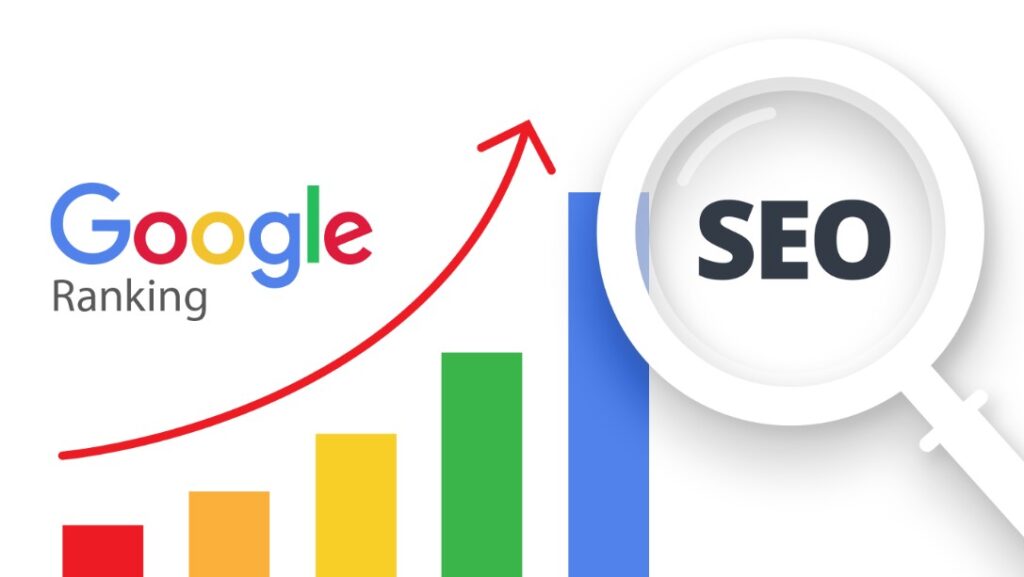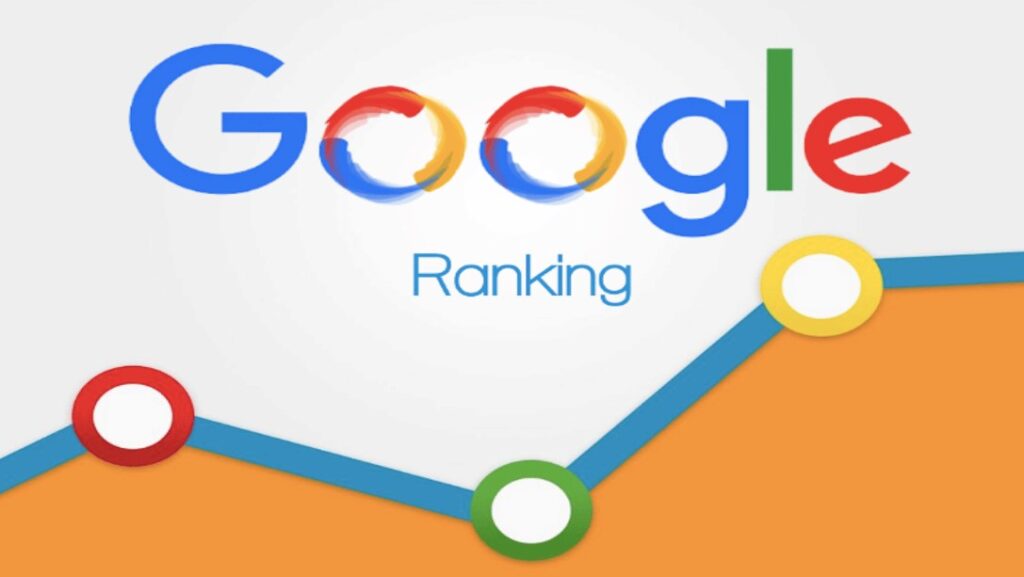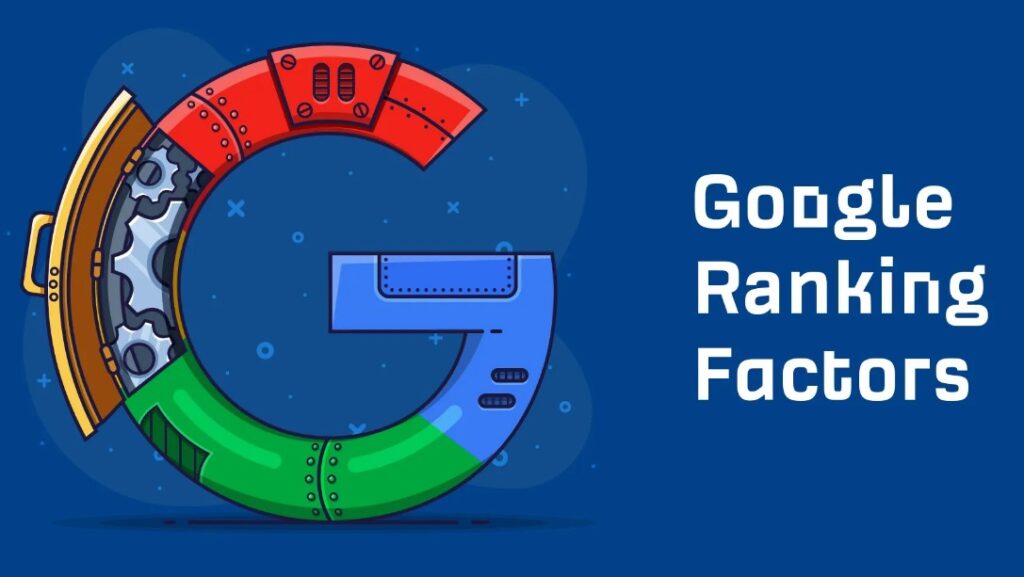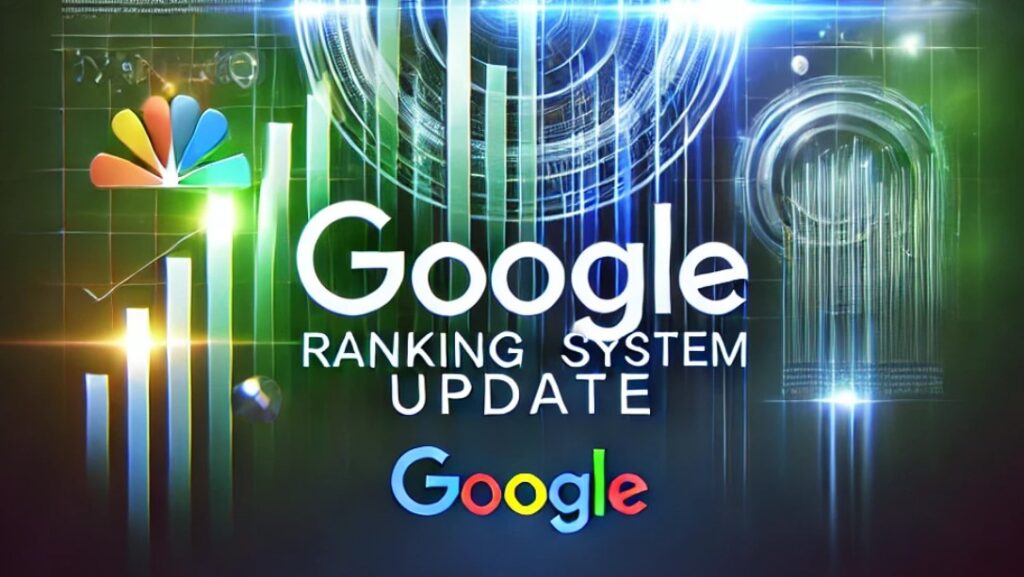Google Ranking: How to Boost Your Website’s Position
Google ranking plays a pivotal role in how visible your website is to users. Every day, millions of people use Google to search for information, products, and services. If your website doesn’t rank highly for relevant searches, you’re missing out on potential traffic, sales, and leads. In simple terms, Google ranking refers to the position your website or webpage holds in the search results for a given search query or keyword. Improving Google ranking is a process that involves various strategies and understanding Google’s complex ranking algorithm. The goal is to increase your visibility in search engine results, helping you get noticed by potential customers.
What is Google Ranking?

Google ranking is the process by which Google determines the relevance of a website in relation to a search query. When someone types in a keyword or question, Google delivers a list of results based on factors such as relevance, content quality, user experience, and other SEO metrics. Websites that rank higher are more likely to be clicked, driving traffic and engagement. These rankings are essential for anyone who wants to improve their site’s visibility and attract targeted traffic.
When you improve your Google ranking, your website appears higher in search results, which increases its chances of attracting organic traffic. This organic traffic is not paid for, unlike advertisements, making it a more sustainable long-term strategy for building website traffic and credibility.
Why Google Ranking is Important for Your Website

Achieving a high Google ranking is crucial for the success of your website. Google’s search engine results page (SERP) plays a vital role in determining your website’s visibility, organic traffic, and credibility. The higher your website ranks, the more likely it is to be seen by your target audience. Below are the key reasons why Google ranking is important for your website:
1. Increased Organic Traffic
- More Visibility: Higher rankings on Google increase the likelihood of your website being clicked by users. Most search engine users rarely look past the first page of results, so being in the top positions ensures more traffic.
- Free Traffic: Organic traffic is free compared to paid ads. By ranking high for relevant keywords, your website attracts visitors without the need for ongoing advertising spend.
2. Higher Conversion Rates
- Targeted Traffic: High rankings often result in attracting more qualified leads. When users find your website for specific search queries, they are likely already looking for what you offer, making them more likely to convert.
- Intent-Driven Searchers: People who search for specific products, services, or information are more likely to take action on your site (e.g., making a purchase or signing up), improving your conversion rates.
3. Builds Credibility and Trust
- Authority: Google ranks websites that are trustworthy and relevant. Being at the top of the search results signals to users that your website is credible and authoritative in your industry.
- Trust from Users: Websites that appear on the first page of Google are perceived as more reliable, which increases user confidence and encourages them to engage with your content and services.
4. Cost-Effective Marketing
- Sustainable Traffic: Unlike paid ads, which stop driving traffic when you stop paying, SEO efforts lead to sustained organic traffic over time. Once your website is ranked high, you continue receiving traffic without additional costs.
- High ROI: SEO efforts provide long-term results. The initial investment in optimizing your website often pays off in the long run as it generates consistent traffic without ongoing ad spending.
5. Competitive Advantage
- Standing Out from Competitors: Ranking higher than your competitors for relevant keywords ensures that you capture more visitors and potential customers, giving you a competitive edge in your market.
- More Clicks: Websites ranking higher receive the majority of clicks, meaning that if you rank above your competitors, you’ll get more visitors, leading to higher market share and brand visibility.
6. Enhanced User Experience
- Google’s Ranking Signals: Google rewards websites that offer a positive user experience, such as fast loading times, mobile optimization, and easy navigation. A high-ranking site often provides a better experience, keeping users engaged longer.
- Low Bounce Rates: When users enjoy their experience on your site, they are more likely to stay longer, reducing bounce rates. Lower bounce rates signal to Google that your site offers valuable content, helping improve your ranking even further.
7. Long-Term Benefits and Brand Visibility
- Continuous Traffic Flow: High rankings provide ongoing exposure to your website, meaning your brand continues to gain visibility over time. Even without continuous advertising, your site can remain visible to potential customers.
- Brand Authority: A high ranking helps establish your website as an authoritative source in your field. As your site continues to attract visitors, your brand becomes more recognized and trusted by a broader audience.
8. Better Local Search Results
- Local Search Visibility: If you run a local business, ranking well in Google’s local search results is critical. Appearing in the Local Pack can help you stand out in your local community and attract more foot traffic or local customers.
- Increased Local Traffic: Ranking highly for location-specific searches boosts your visibility in the local area and can drive more people to visit your physical store or engage with your business online.
Key Factors Influencing Google Ranking

Google uses a complex algorithm to determine how websites rank on its search engine results pages (SERPs). Understanding the key factors that influence Google ranking can help you optimize your website to improve visibility, attract more organic traffic, and ultimately grow your online presence. Below are some of the most important factors that play a role in determining Google ranking:
1. Content Quality and Relevance
- Keyword Optimization: Google looks for websites that provide relevant, high-quality content based on search queries. By targeting specific keywords related to your business or niche, you ensure that your content answers the user’s search intent.
- Comprehensive Content: Google’s algorithm values in-depth and well-researched content that comprehensively covers a topic. Longer articles or pages that provide valuable information and solve the user’s problems are more likely to rank higher.
- Originality: Duplicate or plagiarized content can harm your rankings. Google rewards original content that offers fresh, valuable insights over content that simply regurgitates information already found elsewhere.
2. Backlinks (Link Building)
- Quality of Backlinks: One of the most important ranking factors is the quality of backlinks pointing to your website. Backlinks from authoritative and trustworthy websites signal to Google that your website is reliable.
- Natural Link Profile: Google looks for a natural backlink profile, meaning a variety of links from different types of websites. High-quality backlinks from reputable sources can significantly boost your ranking.
- Relevance: The relevance of the linking website to your niche or industry also matters. A backlink from a relevant, high-authority website in your field carries more weight than one from an unrelated site.
3. On-Page SEO
- Title Tags and Meta Descriptions: These HTML elements should accurately describe the content of your pages while incorporating relevant keywords. An optimized title tag and meta description can improve click-through rates and user engagement.
- Header Tags (H1, H2, H3): Proper use of header tags helps Google understand the structure of your content and makes it easier for users to read and navigate.
- URL Structure: Clean, simple URLs that include keywords can positively influence your ranking. URLs should be easy to read and reflect the content of the page.
4. User Experience (UX)
- Page Load Speed: Google places a high importance on website speed. Faster-loading pages offer a better user experience and are more likely to rank higher. Slow-loading sites can result in higher bounce rates, which negatively affect rankings.
- Mobile-Friendliness: With an increasing number of users browsing the internet on mobile devices, Google prioritizes mobile-friendly websites. A responsive design that adapts to different screen sizes is essential for ranking well.
- Bounce Rate and Time on Site: Google also considers user behavior metrics such as bounce rate (the percentage of visitors who leave your site after viewing one page) and time on site. High bounce rates suggest poor user experience, negatively affecting rankings.
5. Technical SEO
- Site Architecture: A clear, easy-to-navigate site structure makes it easier for Google’s bots to crawl and index your content. Websites with a logical hierarchy and proper internal linking tend to perform better.
- SSL Certificate: Google prefers websites with secure connections. Having an SSL certificate (i.e., a URL starting with “https”) is crucial for both user security and SEO.
- XML Sitemap: An XML sitemap helps search engines crawl your website more efficiently, ensuring all important pages are indexed properly.
6. Social Signals
- Social Media Activity: While Google does not directly use social media signals as a ranking factor, social shares and interactions can drive traffic to your website. Increased traffic and user engagement can indirectly influence your ranking.
Essential SEO Tools to Improve Google Ranking

Using the right SEO tools can make a significant difference in how well your website ranks on Google. Below are three of the best tools available to help you optimize your site’s Google ranking.
1. Ahrefs
Ahrefs is one of the most powerful and popular SEO tools. It provides comprehensive features to help businesses improve their search engine rankings, including a robust backlink checker, keyword research tools, site audits, and more.
Key Features
- Keyword Research: Ahrefs allows you to discover high-volume keywords related to your niche. It provides valuable data on keyword difficulty, search volume, and competition.
- Backlink Analysis: Ahrefs is known for its backlink checker, which helps identify backlink opportunities to boost your website’s authority.
- Site Audit: Ahrefs audits your website to find and fix technical SEO issues like broken links, slow load times, or missing meta tags.
Use Case
Ahrefs is especially useful for businesses or content creators aiming to dominate their niche by focusing on keyword optimization, building quality backlinks, and fixing technical SEO issues.
Price
Ahrefs offers several plans starting from $99 per month for individuals, and larger plans are available for businesses with advanced needs.
Where to Buy
You can purchase Ahrefs and explore its features by visiting their official website.
2. SEMrush
SEMrush is another all-in-one SEO tool that provides comprehensive features designed to improve Google rankings. It allows you to research keywords, audit your website for SEO issues, track your competitors, and improve your overall SEO strategy.
Key Features
- Competitive Analysis: SEMrush lets you see what keywords your competitors are ranking for and how they’re performing, so you can adjust your strategy accordingly.
- Content Optimization: SEMrush offers content optimization tools that help you enhance your website’s content to improve its relevance and search engine rankings.
- Rank Tracking: SEMrush tracks your keyword rankings, allowing you to monitor improvements over time and adjust your strategy as necessary.
Use Case
SEMrush is ideal for businesses looking to perform deep competitive research and refine their content strategy. It’s useful for SEO professionals who need to analyze competitors’ performance and discover untapped keywords.
Price
SEMrush starts at $119.95 per month, with higher-tier plans offering more advanced features.
Where to Buy
You can access SEMrush and subscribe to a plan via their website.
3. Moz Pro
Moz Pro is a suite of SEO tools that offers everything you need to improve your Google ranking. The Moz focuses on both on-page and off-page SEO factors, including keyword research, backlinks, site auditing, and rank tracking.
Key Features
- Keyword Explorer: Moz’s keyword explorer helps you identify keywords with high search volume and low competition, ideal for driving traffic.
- Backlink Analysis: Moz provides a tool to evaluate your backlink profile and find link-building opportunities to boost your ranking.
- Site Audit Tool: Moz’s site audit feature scans your website for SEO errors and recommends fixes to improve its performance.
Use Case
Moz is a great tool for businesses and marketers who need to track and improve their website’s SEO performance. It’s user-friendly and offers insights into both on-page and off-page factors.
Price
Moz Pro starts at $99 per month, with higher plans offering additional features.
Where to Buy
You can sign up for Moz Pro by visiting their website.
Benefits of Improving Google Ranking
Improving your Google ranking offers a variety of benefits that go beyond just attracting traffic. Here’s why it’s essential for your website’s success:
- Increased Visibility and Traffic
Better rankings directly translate to more visibility and, in turn, more organic traffic. Appearing at the top of search results ensures that more people will discover your website, leading to greater opportunities for conversion and engagement. - Cost Savings
SEO is a long-term strategy, and once you achieve high rankings, you can continue to reap the benefits without ongoing advertising costs. Unlike pay-per-click (PPC) ads, the organic traffic driven by a high ranking is sustainable and free. - Enhanced User Trust and Credibility
Websites that rank well are perceived as more trustworthy by users. Ranking high in Google signals to your visitors that your website is credible, reliable, and authoritative. - Competitive Advantage
With more businesses competing for attention online, ranking higher than your competitors can provide a significant edge. By improving your ranking, you make sure that your website appears before others, capturing valuable leads and sales. - Better Conversion Rates
When your website ranks highly for relevant keywords, the people visiting your site are actively seeking the products or services you offer. This leads to higher conversion rates, as visitors are more likely to engage with your content, sign up for your services, or make a purchase.
FAQs
- How long does it take to improve my Google ranking?
The timeline to improve your ranking can vary depending on various factors, including the competitiveness of your niche, the quality of your content, and the effectiveness of your SEO strategy. It can take anywhere from a few weeks to several months to see noticeable improvements. - Is SEO only about content?
No, SEO involves several elements including content quality, technical SEO, backlinks, user experience, and more. It’s a holistic strategy that requires attention to every aspect of your website. - Can I rank on Google without backlinks?
While backlinks are a significant ranking factor, it is still possible to rank without them, especially if your content is highly relevant, user-friendly, and optimized for SEO. However, backlinks can greatly enhance your chances of ranking higher.